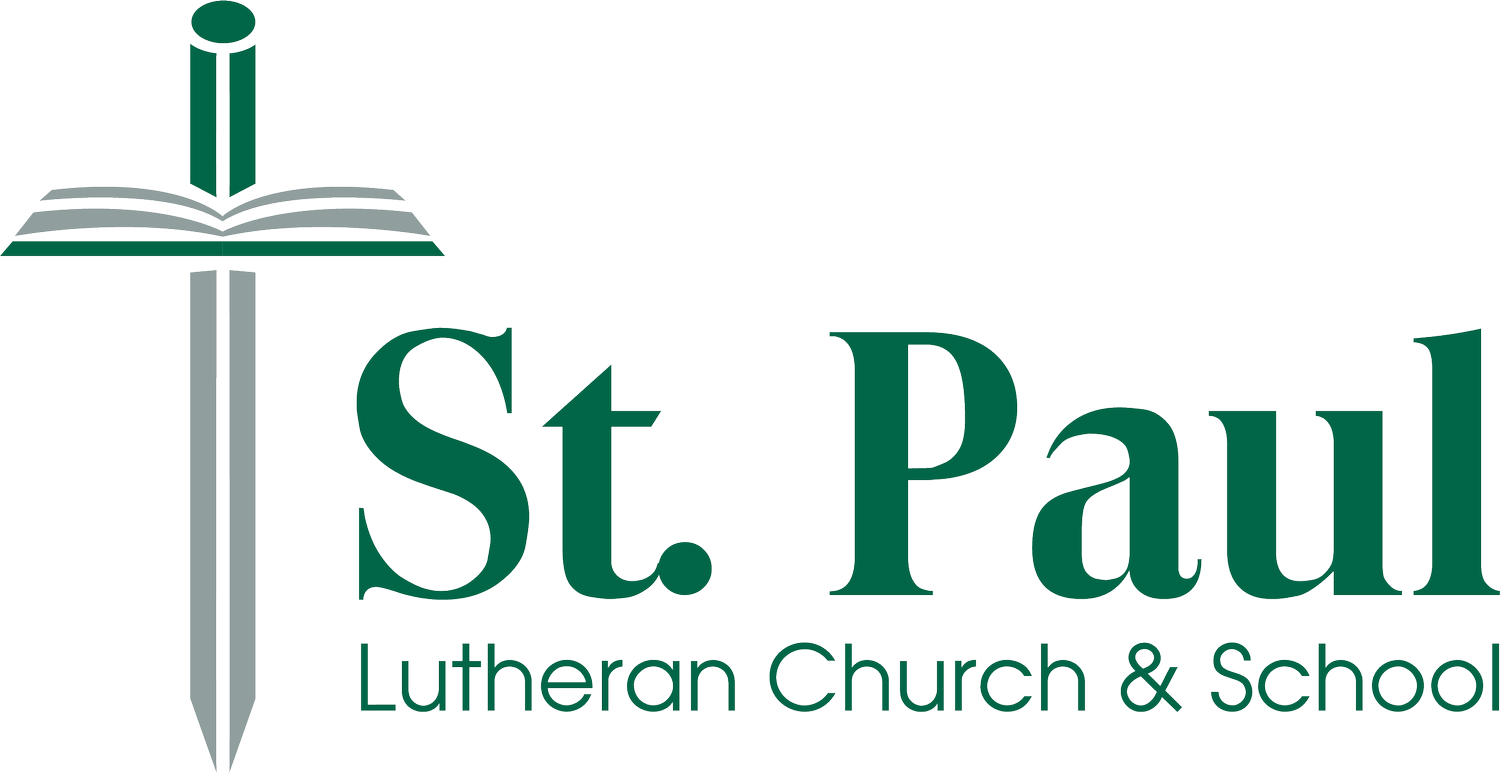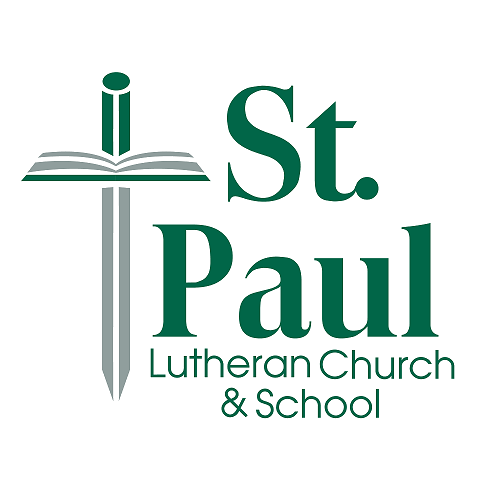The Sacrament of Holy Communion
Celebrating Holy Communion is a regular part of our worship services. For much the Christian church's history, it was held nearly every time God's people gathered together. While we may not observe this sacrament in every worship service at St. Paul, it is still an important part of our life of faith. A sacrament is an activity instituted by Christ, in which his Word is connected to an earthly element to bring us the blessings of the gospel—not only through hearing it, but also in a tangible experience.
The Sacrament of Holy Communion, also known as the Lord's Supper, was given by Christ Jesus to his followers as a special meal. Jesus instituted this sacrament as he ate with his disciples, celebrating the Passover for the last time before he would be betrayed and crucified. We find the institution of the Lord's Supper recorded in God's Word for us by three of the Gospel writers (Matthew 26:26–30; Mark 14:22–26; Luke 22:19–20) and by the apostle Paul:
For I received from the Lord what I also delivered to you: The Lord Jesus, on the night when he was betrayed, took bread, and when he had given thanks, he broke it and said, “This is my body, which is for you. Do this in remembrance of me.” In the same way, after the meal, he also took the cup, saying, “This cup is the new testament in my blood. Do this, as often as you drink it, in remembrance of me.” (1 Corinthians 11:23–25)
In Holy Communion, through God's powerful Word, we truly receive Christ's body and blood at the same time we eat and drink the bread and the wine. While our senses can't comprehend how this is possible, through faith we trust in Christ's promise that he is with us and that in this sacrament he personally gives us the very body and blood he offered on the cross to take away the sins of the world.
As we partake in the Lord's Supper, we receive the forgiveness and sins and the strengthening of our faith. This is a wonderful gift of God; it is also a gift he tells us to use responsibility. Part of this responsibility is in recognizing that we are receiving Christ's true body and blood in this sacrament. Those who commune ought to examine themselves, recognize and repent of their sins, and with humble trust come before our Savior to receive his gift of forgiveness.
The other part of this responsibility is in recognizing what our participation confesses to those around us. The Lord's Supper is not only a communion with God; it is also an expression of communion, of unity, with one another. Those commune together are proclaiming to one another and all those present that they are united in faith and confession—united in teaching with that congregation and any larger visible church body the congregation is part of.
For as often as you eat this bread and drink the cup, you proclaim the Lord’s death until he comes. Therefore whoever eats the bread or drinks the cup of the Lord in an unworthy manner will be guilty of sinning against the Lord’s body and blood. Instead, let a person examine himself and after doing so, let him eat of the bread and drink from the cup. For if anyone eats and drinks in an unworthy way because he does not recognize the Lord’s body, he eats and drinks judgment on himself. (1 Corinthians 11:26–29)
The cup of blessing that we bless, is it not a communion of the blood of Christ? The bread that we break, is it not a communion of the body of Christ? Because there is one bread, we, who are many, are one body, for we all partake of the one bread. (1 Corinthians 10:16–17)
But I urge you, brothers, to watch out for those who cause divisions and offenses contrary to the teaching that you learned, and keep away from them. (Romans 16:17)
In keeping with God's Word, the practice of St. Paul Lutheran—and the historic practice of the Christian church for centuries—is to invite only communicant members of our congregation and congregations in our fellowship (the WELS and our sister synods around the world) to partake in the Lord's Supper with us. We lovingly ask guests who are not in our fellowship to refrain from coming forward for the sacrament.
We cannot pass judgment on any individual's heart, but we take seriously what God's Word says. We do not want anyone by their participation in Holy Communion to express agreement with our church's teaching if they belong to a church body that teaches differently or are otherwise unaware of what we teach. Just as important, if not more so, we do not want anyone by their participation in Holy Communion to cause spiritual harm instead of receiving spiritual healing.
If you would like to learn more about what we believe and teach according to God's Word—whether about Holy Communion or anything else—please feel free to speak with one of our pastors.


